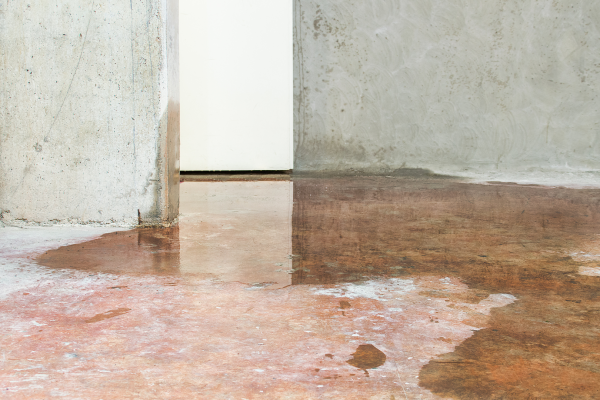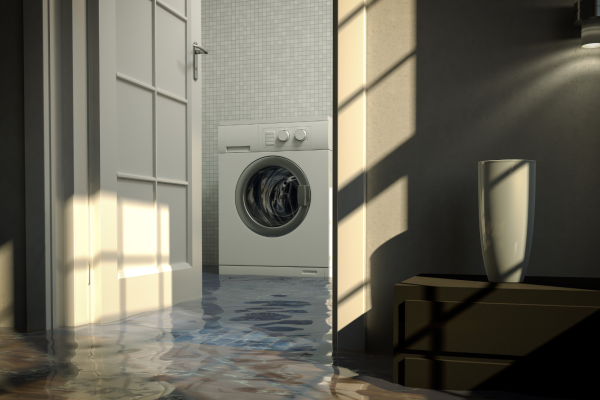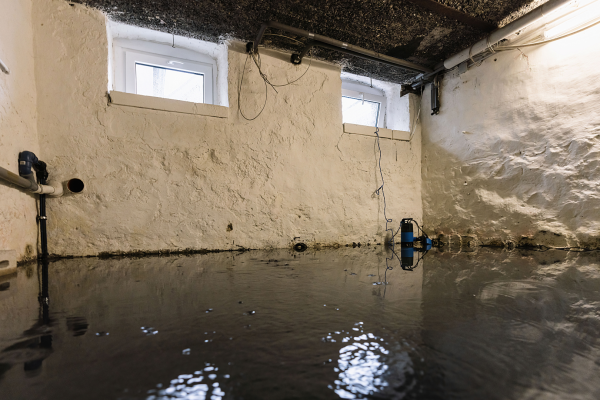Common Causes of Water Damage Flood and How to Avoid Them
Water damage can be devastating and leave homeowners feeling helpless. It can cause significant damage to your property, and if not addressed promptly, it can lead to long-term consequences. In this blog, we will highlight the common causes of water damage, including natural disasters and household issues. We’ll also dive into the severity of water damage and its impact on your property in the first 24 hours versus the long-term consequences. Additionally, we will suggest immediate actions you should take after water damage occurs, such as contacting your insurance company and protecting your valuables. Lastly, we will provide preventive measures to avoid future water damage by waterproofing your home and regular maintenance checks. By following these tips, you can save yourself from the headache of dealing with water damage in the future.

Understanding the Severity of Water Damage
Water damage can have serious consequences for your property. It can cause structural damage and lead to the spread of mold, which can be detrimental to your health. Ignoring water damage can result in major damage and costly repairs. To address water damage effectively, it’s crucial to assess the level of damage and take appropriate actions. This process often requires the expertise of professionals who specialize in water damage restoration. By understanding the severity of water damage and taking immediate action, you can minimize further property damage and restore your home to a safe and dry condition.
The Impact of Water Damage in the First 24 Hours
In the first 24 hours of water damage, acting quickly is crucial to minimize the extent of damage. If left untreated, rapid water spread can cause extensive damage to your belongings. Additionally, water damage creates an ideal environment for the growth of mold, which can lead to health hazards. Therefore, immediate drying of the affected areas is essential to prevent further damage and mitigate the effects of water damage. It is advisable to contact water damage restoration services as they have the expertise to handle the situation effectively. By acting promptly, you can protect your property and ensure peace of mind.
The Long-term Consequences of Water Damage
The long-term consequences of water damage are significant and can have a lasting impact on your property. Over time, water damage can weaken the structural integrity of your property, compromising its stability. Lingering moisture from water damage creates the perfect environment for mold growth, which can lead to allergic reactions and respiratory issues. Additionally, untreated water damage can cause deterioration in flooring, drywall, and insulation. This not only affects the appearance and functionality of your home but also devalues your property. It’s important to address water damage promptly to avoid these long-term consequences and protect your investment.

Immediate Actions to Take After Water Damage
After experiencing water damage, it is crucial to immediately contact your insurance company. This step is essential for initiating the claims process and ensuring that you receive the necessary coverage for the damage. Additionally, taking photos of the water damage can provide valuable documentation for insurance claims and restoration purposes. It is also important to swiftly remove any standing water and begin drying the affected areas to prevent further damage and mitigate the risk of mold growth. Salvaging and protecting your valuables should be a priority, as they hold significant sentimental and monetary value. To ensure thorough cleanup and restoration, it is advisable to hire water damage restoration professionals who have the expertise and equipment to address the specific type of damage. By taking these immediate actions, you can minimize the impact of water damage and restore your home or property efficiently.
Importance of Contacting Insurance Company
Contacting your insurance company immediately after experiencing water damage is crucial. By doing so, you enable insurance adjusters to assess the extent of the water damage and guide the restoration process effectively. Understanding the terms of your homeowner’s insurance policy can also be beneficial during the claims process, ensuring that you receive the necessary coverage for the damages. Filing an insurance claim promptly can expedite the restoration process, allowing for a quicker return to a dry and safe home. Additionally, some insurance companies may offer emergency services for water damage cleanup, providing peace of mind during this challenging time.
Measures to Protect Your Valuables
To protect your valuables from water damage, it’s important to take certain measures. One of the first things you can do is move your belongings to dry areas. This will help safeguard them against any potential water damage. Additionally, properly drying and cleaning furnishings, upholstery, and other items can prevent the growth of mold. Using floor fans and dehumidifiers can aid in the drying process, ensuring that your belongings are thoroughly dried. It’s also important to protect metal surfaces from water damage to prevent corrosion and further damage. In situations where water damage is extensive, it’s advisable to seek the expertise of professional water damage restoration companies who can provide protective gear and effectively restore your belongings.

Preventive Measures to Avoid Future Water Damage
To prevent future water damage, it is essential to take proactive measures. Regularly inspecting your home’s plumbing system can help identify potential issues before they escalate. Consider installing water leak detection devices to receive alerts about potential water damage. Properly insulating pipes can prevent them from bursting during freezing temperatures. Additionally, maintaining your home’s foundation, roof, and gutters is crucial in preventing water damage. Educating yourself about water damage prevention strategies will enable you to address potential risks and protect your property. By implementing these preventive measures, you can ensure a dry and secure home, providing peace of mind for homeowners.
Tips for Waterproofing Your Home
Proper insulation of pipes and water sources is essential to prevent flood damage caused by leaks or bursts. Regularly inspecting the roof for signs of damage or leaks can help detect potential water entry points. Installing a sump pump in the basement is an effective measure to prevent water damage, especially in flood-prone areas. Keeping gutters clean and free of debris ensures that water flows away from your home and avoids overflow. Additionally, applying water-resistant sealants to vulnerable areas of your home, such as windows and doors, can provide added protection against water damage. By following these tips, you can minimize the risk of water damage and ensure a dry and safe home.
How Regular Maintenance Can Prevent Water Damage?
Regular maintenance plays a crucial role in preventing water damage. Stay vigilant by checking and repairing any leaky faucets or pipes. Inspect the water heater for signs of corrosion or damage, and clean rain gutters and downspouts to avoid water buildup. Regularly test and maintain the sump pump, and keep an eye on your water bill for sudden increases that may indicate a leak.
Conclusion
Water damage can have severe consequences, both in the short term and in the long run. It is crucial to understand the severity of water damage and take immediate action to minimize its impact. By identifying common causes of water damage, such as natural disasters and household issues, you can proactively take steps to prevent it. Taking immediate actions after water damage, such as contacting your insurance company and protecting your valuables, can help mitigate the damage. Additionally, implementing preventive measures like waterproofing your home and regular maintenance can greatly reduce the risk of future water damage. By being proactive and taking the necessary precautions, you can protect your property and avoid the costly repairs associated with water damage.
